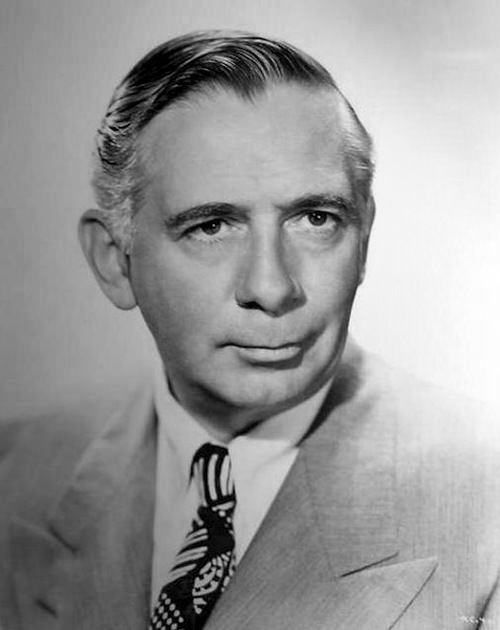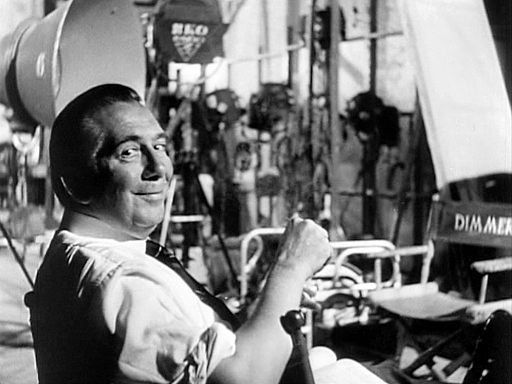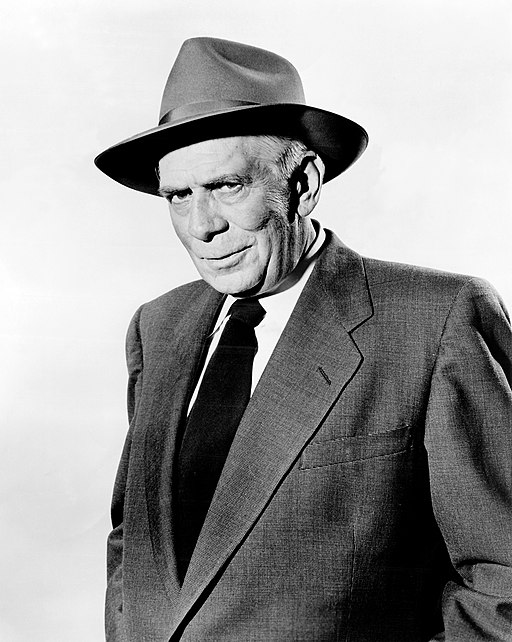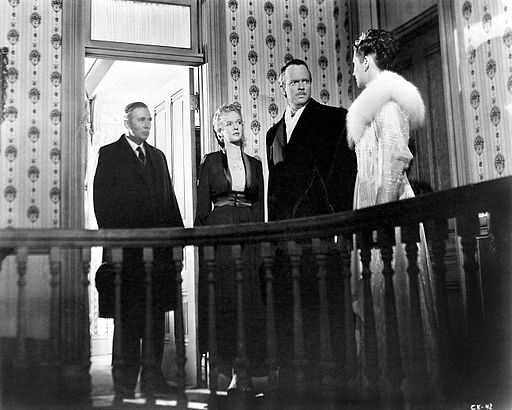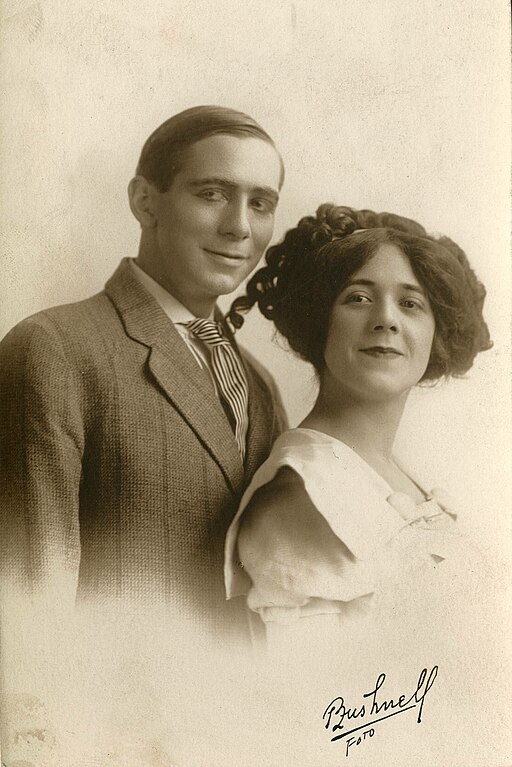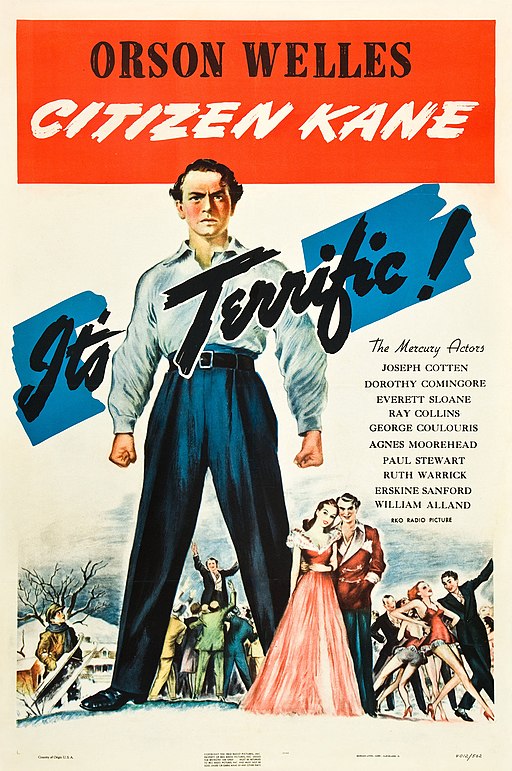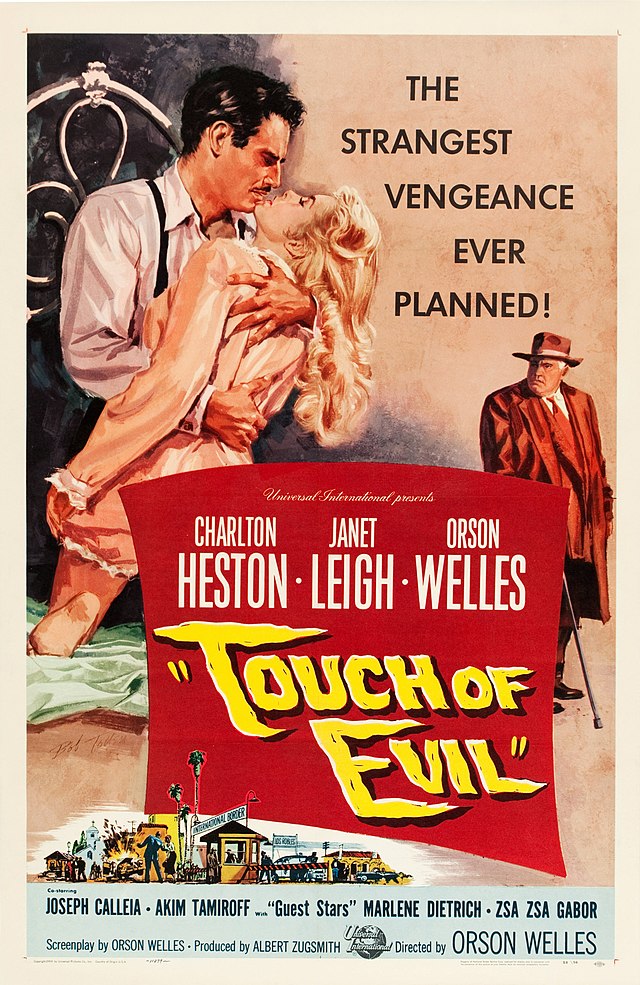Ray Collins
back| Full Name | Ray Bidwell Collins |
| Stage Name | Ray Collins |
| Born | December 10, 1889 |
| Birthplace | Sacramento, California, USA |
| Died | July 11, 1965 |
| Buried | His ashes were scattered at sea |
| Married to | Margaret Marriot (1909 - 1924) - Joan Uron (1926 - his death) |
| Children | Junius Collins (with Margaret Marriot) |
| Notable films | Citizdn Kane (1941) - The Magnificent Ambersons (1942) - Touch of Evil (1958) - The Best man (1964) - Perry Mason (TV Series 1957 - 1966) |
Ray Collins
Character Actor with Depth
Ray Collins had a rich career in theater before moving to radio and then to film. He was a member of Orson Welles' Mercury Theatre company, contributing significantly to its radio productions, most notably "The War of the Worlds" in 1938.
His transition to film brought him roles in many notable movies, often playing dignified or authoritative figures. His work in film and radio during the mid-20th century left a lasting impact on American entertainment.
Related
Ray Collins (1889 – 1965)
Biography and Career Overview
Ray Bidwell Collins was born on December 10, 1889, in Sacramento, California. His path to stardom began in his early years, deeply rooted in the world of theater. Collins's family was involved in the performing arts, with his grandmother being a well-known stage actress in Los Angeles. This early exposure to the arts undoubtedly influenced his career choice.
Path Towards Success
Collins's journey in the performing arts began in earnest at the age of 14, when he started working in theaters. He honed his craft on stage for over two decades, gaining experience and recognition. His stage work eventually led him to radio, where he became a regular player in "The March of Time," a popular radio program.
A significant turning point in his career was his association with Orson Welles. Collins became a key member of Welles's Mercury Theatre company, contributing to its groundbreaking radio productions. His most notable radio work was the infamous 1938 broadcast of "The War of the Worlds," which famously caused panic among listeners who believed it to be a real alien invasion.
Transition to Film
Collins’s transition to film was marked by his continued collaboration with Orson Welles. He made his film debut in "Citizen Kane" (1941), playing the role of James W. Gettys. His performance received critical acclaim and paved the way for more roles in films like "The Magnificent Ambersons" and "Touch of Evil."
Personal Life and Marriages
Ray Collins was married to Margaret Marriott. They had one child. After divorcing her in 1924 Cillins remarried to Joan Uron.
Passions and Interests
Collins was known for his dedication to the performing arts, but little is publicly known about his personal passions and interests outside of acting. His life seemed largely devoted to his craft, whether it was on stage, radio, or film.
Death and Legacy
Collins's health began to decline in the 1960s. He suffered from emphysema, which severely impacted his ability to work. Collins eventually retired from acting in 1965. He passed away on July 11, 1965, due to emphysema. As per his wishes, his ashes were scattered at sea.
Collins left a significant mark in the world of entertainment, especially through his collaborations with Orson Welles. His performances, particularly in "Citizen Kane," remain influential in the film industry. Ray Collins's legacy is that of a dedicated and versatile actor who transitioned seamlessly from stage to radio, and then to film, leaving an indelible mark on each medium.
Short Video Bio on Ray Collins:
Ray Collins’ Acting Style:
Ray Collins' acting style was characterized by a distinctive blend of gravitas, versatility, and subtlety, which made him a respected and memorable figure in American cinema and theater. Here's an analysis of his acting style:
Gravitas and Authority
- One of the most striking aspects of Collins' performances was the sense of authority and gravitas he brought to his roles. Whether playing a politician in "Citizen Kane" or a legal figure in "Perry Mason," he had a commanding presence that naturally drew the audience's attention. His deep, resonant voice and poised demeanor contributed to this effect, making him a natural choice for roles that required a figure of respect or intimidation.
Subtlety and Nuance
- Collins excelled in conveying emotion and intention through subtle expressions and gestures. He didn't rely on over-the-top expressions; instead, he used minimalistic, nuanced movements and facial expressions to convey the inner thoughts and complexities of his characters. This subtlety made his performances more realistic and relatable, allowing audiences to feel the depth of his characters' experiences.
Versatility
- His filmography demonstrates a wide range, from drama and film noir to comedy and science fiction. This versatility stemmed from his extensive theater background, which provided him with a strong foundation in various acting techniques and styles. Collins was able to adapt his performance to fit the tone and style of different genres seamlessly.
Stage-Influenced Projection
- Collins' background in theater had a significant influence on his acting style. He was skilled in projecting his voice and emotions to reach the back of a theater, a trait that he adapted skillfully for the camera. This ability made his performances in film more dynamic and engaging, bridging the gap between stage and screen acting.
Character Actor
- Often seen as a character actor, Collins had the ability to embody a range of secondary but pivotal roles, bringing depth and interest to characters that might otherwise have been overlooked. He had a knack for making even small roles memorable, contributing significantly to the overall impact of the film.
Emotional Authenticity
- Collins was adept at portraying complex emotional states, from the subtle undercurrents of tension to more overt displays of anger or distress. His performances often showcased a depth of emotional understanding, bringing a sense of authenticity to his characters' experiences.
Collaborative Performer
- His work, especially with Orson Welles, showed his ability to be a collaborative performer. He could hold his own with other leading actors, contributing to a cohesive and dynamic ensemble performance.
Conclusion
Ray Collins' acting style was a product of his theater background, personal charisma, and deep understanding of the craft of acting. He brought a unique combination of authority, subtlety, and versatility to his roles, making him a memorable and respected figure in the performing arts. His legacy in film and theater is marked by a range of compelling performances that continue to be admired for their depth and authenticity.
Notable Film Line from Ray Collins:
From "Citizen Kane" (1941)
- As James W. Gettys: "You're the greatest fool I've ever known, Kane. If it was anybody else, I'd say what's going to happen to you would be a lesson to you. Only you're going to need more than one lesson. And you're going to get more than one lesson."
His Part as Lieutenant Arthur Tragg in Perry Mason:
Ray Collins' work on the "Perry Mason" TV series is one of his most recognizable contributions to television. "Perry Mason," based on Erle Stanley Gardner's series of detective stories, was a legal drama that aired from 1957 to 1966. Here's an overview of Collins' involvement in the show:
Role in "Perry Mason"
- Character: Ray Collins played the role of Lieutenant Arthur Tragg, a homicide detective with the Los Angeles Police Department.
- Character Traits: Lt. Tragg was known for being straightforward, methodical, and often found himself in a quasi-adversarial role with Perry Mason, the main character. Despite their professional clashes, Tragg and Mason maintained a mutual respect and professional courtesy towards each other.
- Performance: Collins brought a sense of gravitas and authenticity to the character of Lt. Tragg. His portrayal was marked by a balanced mix of sternness and fairness, making him a beloved character on the show. His experience in film noir and drama added depth to his portrayal of a law enforcement officer.
Impact and Legacy
- Popularity: The character of Lt. Tragg became a staple on the show and was well-received by audiences. Collins’ performance contributed to the show's overall success and its status as one of the most iconic legal dramas in television history.
- Collaboration: Collins’ interactions with Raymond Burr, who played Perry Mason, were a highlight of the show. The dynamic between Mason, a defense attorney, and Tragg, a police detective, added a layer of complexity and intrigue to the series.
- Longevity: Collins appeared in the series from its inception in 1957 until his health began to decline in the early 1960s. His presence in the series is often cited as a key element of its early success.
Departure from the Show
- Health Issues: In the later years of the show, Collins’ health deteriorated due to emphysema. This affected his ability to continue with the demanding schedule of a weekly television series. His appearances became less frequent, and he eventually had to leave the show.
- Last Appearance: Collins made his last appearance in "Perry Mason" during the show's ninth season in 1965.
Awards and Recognition:
Ray Collins, despite his significant contributions to film and radio, did not receive a large number of individual awards or nominations that are commonly recognized today, such as the Oscars or Golden Globes. This lack of individual recognition does not diminish his contributions but rather reflects the era in which he worked and the types of roles he often played.
During Collins' prime, the film industry's award landscape was different from what it is today. Character actors, like Collins, often played crucial but supporting roles and were less likely to receive individual accolades compared to leading actors. Also, many of the awards that celebrate supporting and character actors, like the supporting categories in the Academy Awards, were either in their infancy or non-existent during his most active years.
However, it's important to note the following in terms of recognition:
- Ensemble Recognition: Collins was part of the Mercury Theatre, which was collectively recognized for its innovative and influential work in both radio and theater. The collaboration with Orson Welles in projects like "Citizen Kane" and "The War of the Worlds" radio broadcast are celebrated as significant contributions to their respective mediums.
- Legacy and Influence: While not an award per se, Collins' legacy in the industry is significant. His performances in classics like "Citizen Kane" and "Touch of Evil" are often cited in film studies and have influenced generations of actors and filmmakers.
Movies featuring Ray Collins:
1930s
- 1937 - "The Man Who Cried Wolf": A drama where Collins plays a district attorney in a story about a man who falsely confesses to murder.
1940s
- 1941 - "Citizen Kane": A groundbreaking film by Orson Welles. Collins plays James W. Gettys, a corrupt political boss. The film follows the life of Charles Foster Kane, a newspaper tycoon.
- 1942 - "The Magnificent Ambersons": Another Welles film, Collins portrays Jack Amberson in this story about the declining fortunes of a proud Midwestern family.
- 1943 - "Air Force": In this war film, Collins plays the Chaplain. The story focuses on the crew of an American B-17 Flying Fortress in the early days of World War II.
- 1943 - "Commandos Strike at Dawn": Collins appears as Johan Bergesen in this war drama about the resistance in Norway during WWII.
- 1945 - "Leave Her to Heaven": A psychological thriller where Collins plays Glen Robie. The film tells the story of a writer who falls in love with a young woman whose obsessive love brings tragedy.
- 1946 - "The Best Years of Our Lives": Collins has a role as Mr. Milton. This classic film follows the lives of three WWII veterans adjusting to civilian life.
- 1947 - "The Bachelor and the Bobby-Soxer": Collins plays the role of Beemish in this romantic comedy about a teenager who falls for an older artist.
- 1948 - "Homecoming": In this war drama, Collins plays Lt. Col. Avery Silver. It's a story of a doctor returning from the war and facing his neglected home life.
- 1948 - "A Southern Yankee": Collins appears as Col. Clifford M. Baker in this comedy set during the Civil War.
- 1949 - "Hideout": A film noir where Collins plays Arthur Burdett. It’s a story about a young lawyer who inadvertently helps a criminal escape.
1950s
- 1950 - "Paid in Full": Collins stars as Dr. Fredericks in this drama about sibling rivalry and tragic love.
- 1950 - "The Reformer and the Redhead": Playing Dr. Kevin G. Maguire, Collins is part of a story about a zookeeper's daughter and a reformer.
- 1951 - "I Want You": A drama featuring Collins as Judge Turner. The film centers on the Korean War's impact on a small town.
- 1953 - "The Desert Song": Collins plays Gen. Birabeau in this musical set in the desert of North Africa.
- 1953 - "The Kid from Left Field": Playing Fred F. Whacker, Collins is part of a story about a young boy who helps a struggling baseball team.
- 1955 - "Ma and Pa Kettle at Waikiki": Collins appears as Rodney Kettle in this comedy about the Kettle family's unexpected trip to Hawaii.
- 1955 - "Illegal": A film noir where Collins plays E.A. Smith. It’s a story about a district attorney's rise and fall.
- 1956 - "The Solid Gold Cadillac": In this comedy, Collins plays Alfred Metcalfe, part of a story about a small shareholder taking on corrupt company executives.
- 1957 - "The Deadly Mantis": Collins appears as Gen. Mark Ford in this sci-fi film about a giant prehistoric praying mantis terrorizing the world.
- 1957 - "The Halliday Brand": A western drama where Collins plays Big Dan Halliday. The story revolves around family conflict and justice.
- 1958 - "Touch of Evil": Collins portrays District Attorney Adair in this film noir directed by Orson Welles, famous for its opening long take.
1960s
- 1964 - "The Best Man": Collins plays Ex-President Art Hockstader in this political drama about the backroom politics of a presidential convention.

